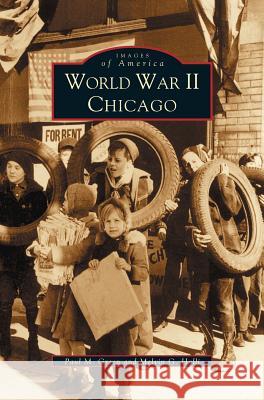World War II Chicago » książka
World War II Chicago
ISBN-13: 9781531617974 / Angielski / Twarda / 2003 / 130 str.
Chicagoans united in their World War II effort against the Axis powers. They signed up for military service, rallied to the call for increased wartime production, and aided the war effort through the rationing of food and gasoline. From fast growing victory gardens to mini-monuments to local servicemen-Chicago, the "City of Neighborhoods," saw all of its geographic parts vie for recognition and honor in a ethnic mosaic of patriotism.The war years ushered in changing times for Chicago. The city became an important military center as thousands of troops trained or passed through en route to the war fronts, while Chicago's civilian population engaged in manufacturing war materials. As defense plants sprang up all over Chicago, African-American tenant farmers, who migrated from the South, and women replaced the male labor force.
Chicagoans united in their World War II effort against the Axis powers. They signed up for military service, rallied to the call for increased wartime production, and aided the war effort through the rationing of food and gasoline. From fast growing victory gardens to mini-monuments to local servicemen-Chicago, the "City of Neighborhoods," saw all of its geographic parts vie for recognition and honor in a ethnic mosaic of patriotism.
The war years ushered in changing times for Chicago. The city became an important military center as thousands of troops trained or passed through en route to the war fronts, while Chicagos civilian population engaged in manufacturing war materials. As defense plants sprang up all over Chicago, African-American tenant farmers, who migrated from the South, and women replaced the male labor force.











